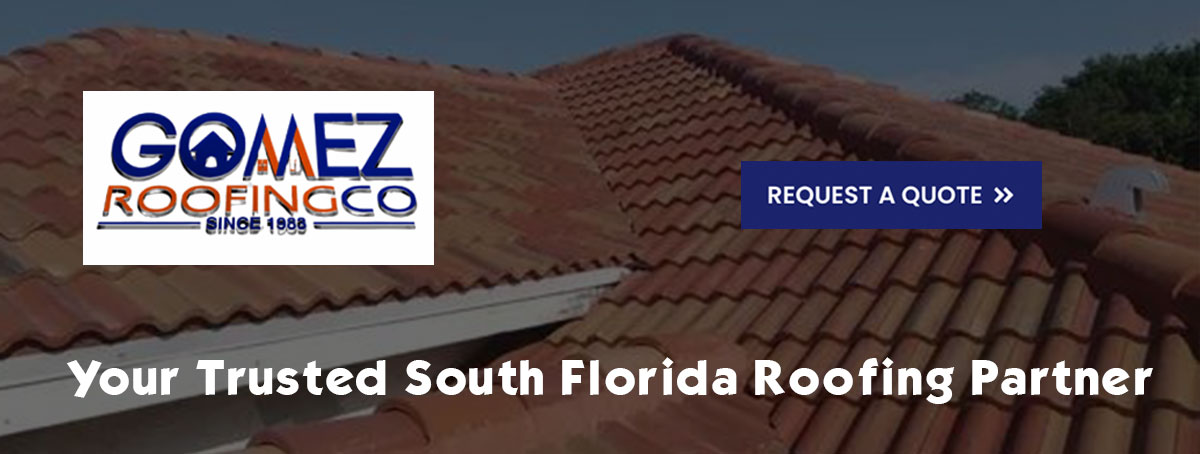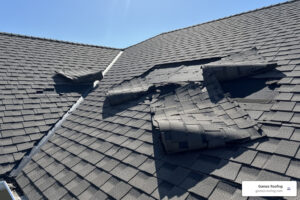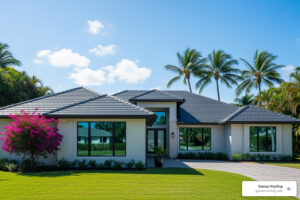Solar Pool Heater Cost Insights
Installing a solar pool heater can lower annual heating expenses by up to 80%, but knowing what is the average cost of installing a solar pool heater helps you budget effectively. This guide explains the typical price ranges, key cost drivers, and how pool size, collector type, labor, permits, and regional factors influence total expenses. You’ll also learn how solar pool systems stack up against heat pumps and gas heaters, strategies to maximize ROI—including incentives and payback periods—and essential maintenance practices to extend lifespan. Finally, discover why professional installation by a trusted provider like Gomez Roofing ensures quality craftsmanship and long-term performance while exploring service areas and financing solutions.
What Is the Average Cost to Install a Solar Pool Heater?
A solar pool heater installation generally costs between $2,500 and $7,000 for most residential pools. This price includes solar collectors, plumbing, heat exchanger, and basic controls, enabling homeowners to harness renewable solar energy and reduce monthly heating bills by up to 80 percent.
Average Cost of Solar Pool Heater Installation
The average cost to install a solar pool heater typically ranges from $2,500 to $7,000. This price includes the cost of solar collectors, plumbing, a heat exchanger, and basic controls.
What Are the Typical Price Ranges for Solar Pool Heating Systems?
- Basic flat-plate collectors: $2,500–$4,500
- Mid-range glazed or unglazed panels: $4,500–$6,000
- High-efficiency evacuated tube systems: $6,000–$8,500
Prices vary with material quality and performance, balancing upfront investment with long-term energy savings.
How Does Pool Size Affect Solar Pool Heater Installation Cost?
Pool surface area directly influences collector area requirements.
- Small pools (up to 300 sq ft): 250–500 sq ft of panels ($2,500–$5,000)
- Medium pools (300–500 sq ft): 400–600 sq ft of panels ($4,000–$7,000)
- Large pools (500+ sq ft): 600+ sq ft of panels ($6,000–$9,000+)
Larger arrays capture more solar energy but increase material and installation expenses.
What Are the Labor and Material Costs Involved?
Labor accounts for roughly 30–50% of total cost, including panel mounting, piping, and integration with existing pump systems. Material costs cover:
- Solar collectors
- Copper or PVC piping
- Valves and fittings
- Controller unit
Materials typically represent 50–70% of project cost, with labor rates varying by region and installer expertise.
Factors Influencing Solar Pool Heater Costs
The cost of a solar pool heater installation is affected by several factors, including pool size, the type of system chosen, and the complexity of the installation. Material costs typically represent 50–70% of the project cost, while labor accounts for roughly 30–50%.
Are There Permit Fees or Additional Charges?
Permit fees and inspections can add $200–$800 to the project, depending on local regulations. Additional charges may include:
- Structural assessments
- Roof or deck reinforcement
- Electrical work for controller installation
Understanding these regulatory costs prevents surprises and ensures code compliance.
Which Factors Influence the Cost of Solar Pool Heater Installation?
Several variables combine to determine final installation cost, from collector technology to local market rates.
How Do Different Solar Collector Types Impact Pricing?
Collector material and design majorly affect prices and efficiency:
| Collector Type | Efficiency | Average Cost |
|---|---|---|
| Unglazed Polymer | Medium | $8–$12 per sq ft |
| Glazed Flat-Plate | High | $12–$20 per sq ft |
| Evacuated Tube | Very High | $15–$25 per sq ft |
What Role Does Location and Regional Pricing Play?
Labor rates and permit fees differ by region:
- Sunbelt states: 10–15% lower labor costs
- High-regulation areas: 20–30% higher permit expenses
- Remote locations: Additional travel or logistics surcharges
Regional solar irradiance also influences system size and design, affecting overall cost.
How Does System Complexity Affect Installation Expenses?
Complex systems with bypass valves, sensors, and automation increase labor time and component costs.
- Simple direct-circulation: lowest cost and minimal controls
- Automated multi-loop systems: 20–30% premium for sensors and controllers
- Integration with smart-home platforms: additional wiring and programming fees
Custom layouts require detailed design and longer installation windows.
What Are the Differences Between DIY and Professional Installation Costs?
DIY installation can save 25–40% on labor but carries risks of voided warranties, improper sizing, and leak issues. Professional installation by licensed technicians ensures:
- Code-compliant permits
- Expert troubleshooting
- Manufacturer warranty retention
Value of craftsmanship, safety, and long-term system reliability often outweighs the labor savings of DIY projects.
How Does a Solar Pool Heater Compare to Other Pool Heating Options?
Understanding cost differences and efficiency helps homeowners choose the best heating solution.
What Is the Cost Difference Between Solar Pool Heaters and Heat Pumps?
| Heating Option | Installation Cost | Annual Operating Cost |
|---|---|---|
| Solar Pool Heater | $2,500–$7,000 | $0–$200 |
| Electric Heat Pump | $4,000–$6,500 | $800–$1,200 |
Solar Pool Heater vs. Heat Pump Costs
Solar pool heaters have an installation cost of $2,500–$7,000 and an annual operating cost of $0–$200. Electric heat pumps have an installation cost of $4,000–$6,500 and an annual operating cost of $800–$1,200.
How Do Energy Efficiency and Operating Costs Compare?
Solar collectors convert up to 80% of sunlight into heat, leading to minimal operating costs. Heat pumps have a coefficient of performance around 5, meaning they use one unit of electricity to generate five units of heat but still incur electricity bills.
What Are the Environmental Benefits of Solar Pool Heating?
Solar pool systems produce zero on-site emissions, reducing carbon footprint by an estimated 2–3 tons of CO₂ per year. By leveraging renewable solar energy, homeowners support sustainability and may qualify for green building certifications.
How Does Maintenance and Lifespan Affect Overall Cost?
Solar pool heaters typically last 15–20 years with minimal upkeep, while heat pumps last around 10–15 years. Low maintenance involves occasional filter cleaning and system checks, whereas heat pumps require annual refrigerant and compressor service, adding to lifecycle costs.
How Can Homeowners and Property Managers Maximize ROI on Solar Pool Heater Installation?
Strategic planning and incentives accelerate payback and long-term value.
What Government Incentives and Tax Credits Are Available?
Federal tax credits can cover up to 30% of installation cost, and many states offer rebates or sales tax exemptions.
- Federal Residential Renewable Energy Credit: 30%
- State/local rebates: $200–$1,500
- Utility company incentives: tiered rebates based on system size
Leveraging these incentives reduces net investment significantly.
How Much Can Energy Savings Reduce Pool Heating Bills?
By replacing conventional heating, solar pool systems can slash pool heating costs from $1,000–$1,800 per season to under $200. Annual savings often exceed $800, increasing with fuel price inflation.
What Is the Typical Payback Period for Solar Pool Heating Systems?
Most homeowners recoup their investment within 4–7 years, depending on system cost, local incentives, and usage patterns. High-sun areas and longer swim seasons accelerate payback timelines.
How Does Solar Pool Heating Increase Property Value?
Energy-efficient pool heating adds market appeal and can boost home appraisal value by 3–5%. Prospective buyers prioritize low-operating-cost amenities, making solar pool systems a valuable selling feature.
What Are the Maintenance Requirements and Longevity of Solar Pool Heaters?
Proper upkeep maintains efficiency and extends service life.
What Is the Recommended Maintenance Schedule?
A typical schedule includes:
- Monthly visual inspections of collectors and piping
- Quarterly valve and sensor checks
- Annual flushing of the system to remove debris
Routine care prevents clogs and ensures optimal performance, supporting a multi-decade lifespan.
How Can Common Issues Be Troubleshooted?
Clogged filters, airlocks, or sensor faults can reduce heat output. Steps include:
- Bleeding air from the system using manual valves
- Cleaning or replacing filters beneath the pump
- Verifying sensor calibrations on the controller
Prompt troubleshooting minimizes downtime and preserves efficiency.
How Long Do Solar Pool Heaters Typically Last?
Well-maintained solar collectors and plumbing fixtures last 15–20 years, with controllers and pumps often requiring replacement around year 10. This longevity offers decades of near-free pool heating.
Maintenance and Longevity of Solar Pool Heaters
Solar pool heaters typically last 15–20 years with minimal upkeep. Low maintenance involves occasional filter cleaning and system checks.
What Warranty Options Are Offered by Gomez Roofing?
Gomez Roofing provides a 10-year workmanship warranty on solar pool heater installation and up to a 20-year performance warranty on select solar collectors. These guarantees underscore quality installation and reliable system performance.
Gomez Roofing Solar Pool Heater Services
Gomez Roofing offers solar pool heating solutions, including customized design and professional installation. They provide a 1-year workmanship warranty on solar installations.
Where Can You Get Professional Solar Pool Heater Installation Services?
Partnering with an experienced provider ensures proper design, permits, and reliable operation.
Why Choose Gomez Roofing for Solar Pool Heater Installation?
Gomez Roofing combines expert solar integration with exceptional service, offering:
- Decades of licensed roofing and solar expertise
- Custom system design tailored to pool size and climate
- Certified technicians for seamless installation
- Unmatched workmanship backed by comprehensive warranties
This approach elevates reliability and long-term performance.
What Service Areas Does Gomez Roofing Cover?
Gomez Roofing serves residential and commercial properties across regional markets, including coastal and inland communities. Their portfolio of projects—ranging from pool decks to solar arrays—demonstrates versatility in property enhancement. Learn more about property upgrades in specialized sectors like Commercial Decking – Gomez Roofing, showcasing integrated outdoor solutions.
How to Request a Free Solar Pool Heater Installation Quote?
Homeowners can schedule a no-obligation site assessment online or by phone. A certified estimator evaluates pool dimensions, orientation, and roof space to deliver a detailed proposal with transparent pricing and incentive calculations.
What Financing Options Are Available for Installation?
Flexible financing includes:
- Low-interest solar loans
- Lease–purchase plans
- Payment installments aligned with incentive disbursement
These solutions make renewable pool heating accessible to a wide range of budgets.
What Are the Most Frequently Asked Questions About Solar Pool Heater Installation Costs?
Below is an overview of common inquiries and concise insights to guide decision-making.
| Common Question | Key Insight | Response Summary |
|---|---|---|
| How much does it cost to heat a pool with solar panels? | Installation averages $2,500–$7,000 | Typical setup costs depend on pool size and panel efficiency. |
| Are solar pool heaters worth the investment? | Payback in 4–7 years | Long-term energy savings exceed upfront costs within a decade. |
| How long do solar pool heaters last? | 15–20 years | Durable collectors and minimal maintenance support longevity. |
| What is the most efficient way to heat a pool? | Solar collectors in sunny climates | Evacuated tubes deliver peak efficiency year-round. |
| What is the cheapest way to heat a pool? | Unglazed polymer panels | Lower material cost with modest performance in warm regions. |
Solar pool heating offers a compelling combination of sustainability, energy savings, and property value enhancement. By understanding installation costs, influencing factors, and maintenance requirements, homeowners can make informed choices. Partnering with a reliable expert like Gomez Roofing ensures professional design, quality workmanship, and comprehensive support—transforming your pool into an eco-friendly retreat with predictable costs and lasting benefits.




